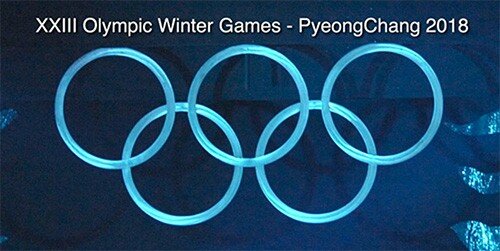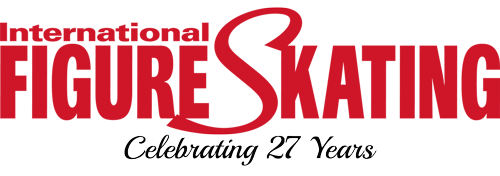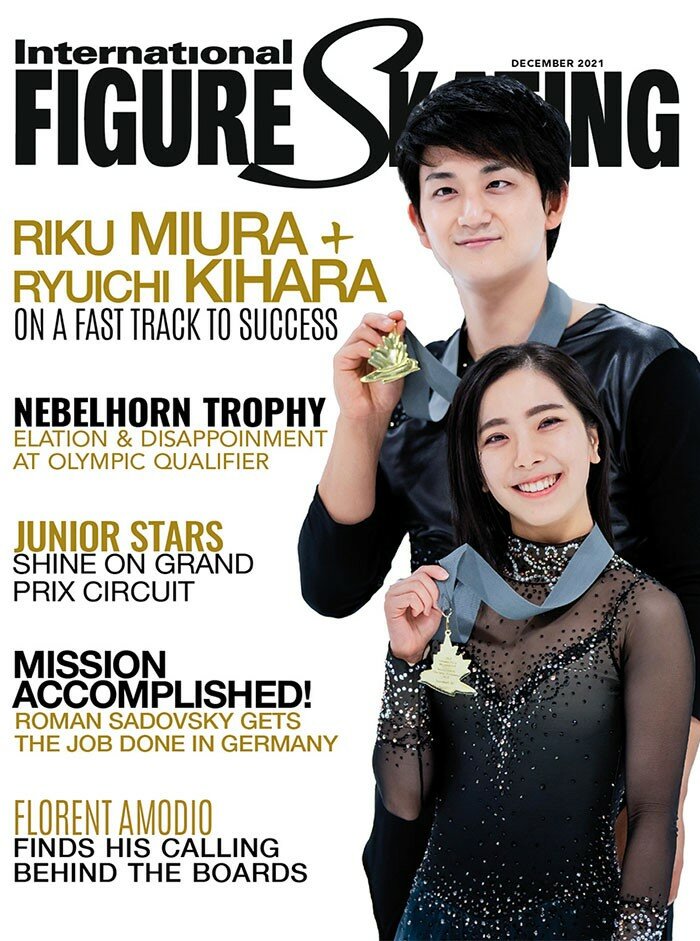
Registration of Olympic athletes is now complete. 2,924 athletes from 92 National Olympic Committees will compete at the 2018 Olympic Winter Games in PyeongChang. This is the largest number of athletes ever registered for an Olympic Winter Games.
The first delegation to complete their entry was the U.S. with the largest contingency of 242 athletes. Canada will have 225, OAR 168, and Norway 111.
Host nation, the Republic of Korea, will field its largest Winter Games representation ever, with 144 athletes across all 15 disciplines up from 71 four years ago. The Democratic People’s Republic of Korea (DPRK) will be represented by 22 athletes in five disciplines.
Six countries will make their debut in an Olympic Winter Games at PyeongChang 2018: Ecuador (Cross-Country Skiing), Eritrea (Alpine Skiing), Kosovo (Alpine Skiing), Malaysia (Figure Skating), Nigeria (Bobsleigh and Skeleton) and Singapore (Short Track Speed Skating).
OUT IN THE COLD
The venue for the opening and closing ceremonies, located in PyeongChang, is a 35,000-seat pentagonal stadium that will only be used for these ceremonies and will be dismantled following the Paralympic Games. The outdoor arena lies in a mountainous region that is notorious for strong winds and frigid temperatures. Those attending the opening and closing ceremonies will need to dress appropriately for many hours of exposure to frigid weather. Organizers plan to provide blankets and raincoats for spectators and are considering placing heaters in some aisles between the rows of plastic seats.
The 2018 Olympics Could be the Coldest in 24 Years
SKATING AT THE BEACH
The city of Gangneung, where figure skating, curling, hockey and short track events will be held, is located 50 miles west of PyeongChang on the northeast coast of South Korea. New highways between PyeongChang and Gangneung connect most venues within an hour’s drive. A new high-speed train that begins operation in January will connect Incheon International Airport and Seoul with the mountain and coastal clusters.
IOC DECISION ON RUSSIAN PARTICIPATION
On Nov. 16, the World Anti-Doping Agency (WADA) announced it had denied Russia’s request for reinstatement. The agency concluded that Russia had failed to fulfill two key requirements for reinstatement — public acknowledgement and acceptance of the results of the McLaren investigation, and to allow WADA access to urine samples collected for the period of the alleged cheating.
WADA subsequently gained access to the Moscow-based database and after analyzing the data, provided the IOC with the results.
The International Olympic Committee (IOC) met to consider and determine what sanctions it would impose on Russia at the 2018 Olympic Winter Games. On Dec. 5, the IOC announced its decision. Rather than punish innocent athletes not identified in the McLaren Report or those who names were on the Moscow database, the IOC stated it would invite those athletes to compete at the Olympic Games under very strict conditions.
No Russian fags would be permitted; all athletes will wear uniforms that bear the insignia “Olympic Athlete from Russia” (OAR); and at all medal ceremonies the Olympic anthem will be played for any OAR athlete that wins a gold medal. Initially, Russian president Vladimir Putin hinted that his nation would boycott the Games if any sanctions were imposed, but following the announcement, he had a change of heart and publicly encouraged all eligible Russian athletes to compete in PyeongChang.
On January 25, the Russian Figure Skating Federation announced that the IOC had not invited pairs skater Ksenia Stolbova or ice dancer, Ivan Bukin, the son of the 1988 Olympic ice dance champion, Andrei Bukin.
Bukin and his partner Alexandra Stepanova were invited to join the approved athletes at a training camp in Fukuoka, Japan on Jan. 27 but declined, as did Stolbova and Fedor Klimov. Both teams stated they would use the time to prepare for the World Championships in March.
RUSSIAN TEAM TO WEAR NEUTRAL GRAY AND RED UNIFORMS IN PYEONGCHANG
The draw for the countries that will form the judging panels at the 2018 Olympic Winter Games took place at Nebelhorn Trophy in Oberstdorf, Germany on September 30, 2017.

NATIONS THAT QUALIFIED AT 2017 NEBELHORN TROPHY

NATIONS THAT QUALIFIED BERTHS AT THE 2017 WORLD CHAMPIONSHIPS

From the ISU Council meeting held Oct. 15-17 (condensed):
8. Olympic Winter Games 2018 PyeongChang – Host Country Place for the Republic of Korea for the Olympic Pair Skating Competition
The Council decided that as the Republic of Korea did not obtain a place in the pairs event at the Olympic Winter Games through the normal qualifying procedure and as it is the “host country,” in accordance with ISU Regulations and the IOC approved Qualification System, the Republic of Korea may enter a pair in the individual event at the 2018 Olympic Winter Games. However, this “host country place” will only be implemented if there are remaining places from the 10 Team event “Additional Athletes Quotas.”
The status of this “Additional Athletes Quota” will be finalized only after the ISU Grand Prix of Figure Skating Final, to be held in Nagoya/Japan on December 7-10, 2017.
As to the starting order for the Olympic Pairs event with respect to the Republic of Korea, Council decided that the host country team will be assigned starting number 1, in order to avoid any impact on the draw for the pairs that have qualified through the normal qualifying procedure.

HOST COUNTRY ALLOCATIONS
In accordance with Rule 400, in case the Host ISU Member went through the normal qualifying procedure and did not qualify under Rule 400 paragraphs 3 or 4 in any of the disciplines (Ladies, Men, Pair Skating, Ice Dance), the Host ISU Member shall have the right to enter one (1) Competitor per concerned discipline(s) as additional entry(ies) as long as the concerned Skater(s)/Pair/Couple achieved the Minimum Total Elements Score (points) for the Olympic Winter Games and places are available from the additional Athletes Quota.
TEAM EVENT
The ISU will inform Members/NOCs following the 2017/18 Grand Prix Final – which will take place in Nagoya, Japan Dec. 7-10, 2017 – of the Teams that qualified for the Olympic Team Event.
According to Rule 400, paragraph 4, the remaining open entries available will be filled by ISU Members in order of their placements at the 2017 Nebelhorn Trophy – September 27-30, 2017 – in Oberstdorf, Germany. The open entries are available only to those ISU Members that have not previously earned an entry in the respective discipline (according to Rule 400, paragraphs 2 and 3) and only one (1) entry per discipline per ISU Member can be earned.
ISU Members who have earned entries, should, after consultation with their National Olympic Committee, inform the ISU Secretariat not later than 15 September 2017 if they intend to use their full quota of entries. In the case that some ISU Members do not intend to use their full quotas of entries, the remaining open entries available will be filled by increasing the number of entries according to Rule 400 A., paragraph 4.
|
No. of Skaters in the 2017 ISU World Figure Skating Championships (Helsinki) |
Points required for 3 entries in the 2018 OWG |
Points required for 2 entries in the 2018 OWG |
|
Two (2) One (1) |
Not more than 13 Not more than 2 |
Not more than 28 Not more than 10 |
ISU Members not exercising the right to announce their participation: Rule 400 A., paragraph 8. In the event that ISU Members do not exercise their right to announce their participation within the prescribed IOC date limit in accordance with Rule 400 A., paragraphs 3 to 5, stand-by entries will be chosen, based on the final results of the Senior International Competition designated by the ISU (Nebelhorn Trophy 2017, September 27-30, 2017, Oberstdorf/Germany) for those ISU Members not qualified and not yet represented. The remaining open entries available will be filled by ISU Members in order of their placements at a Senior International Competition designated by the ISU (Nebelhorn Trophy 2017, September 27-30, 2017, Oberstdorf/Germany). The open entries are available only to those ISU Members which have not previously earned an entry in the respective discipline (according to Rule 400 A., paragraphs 2 and 3).




